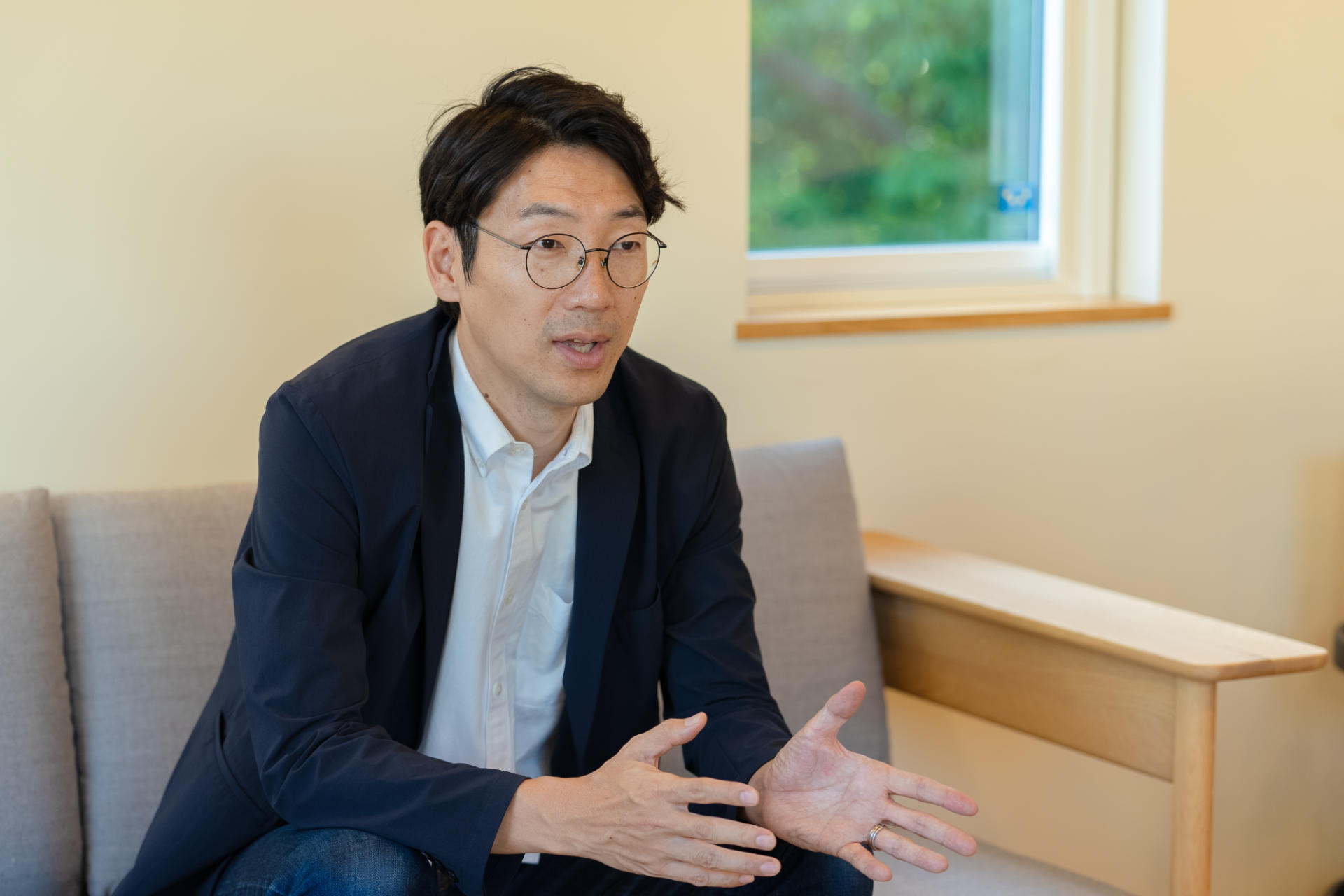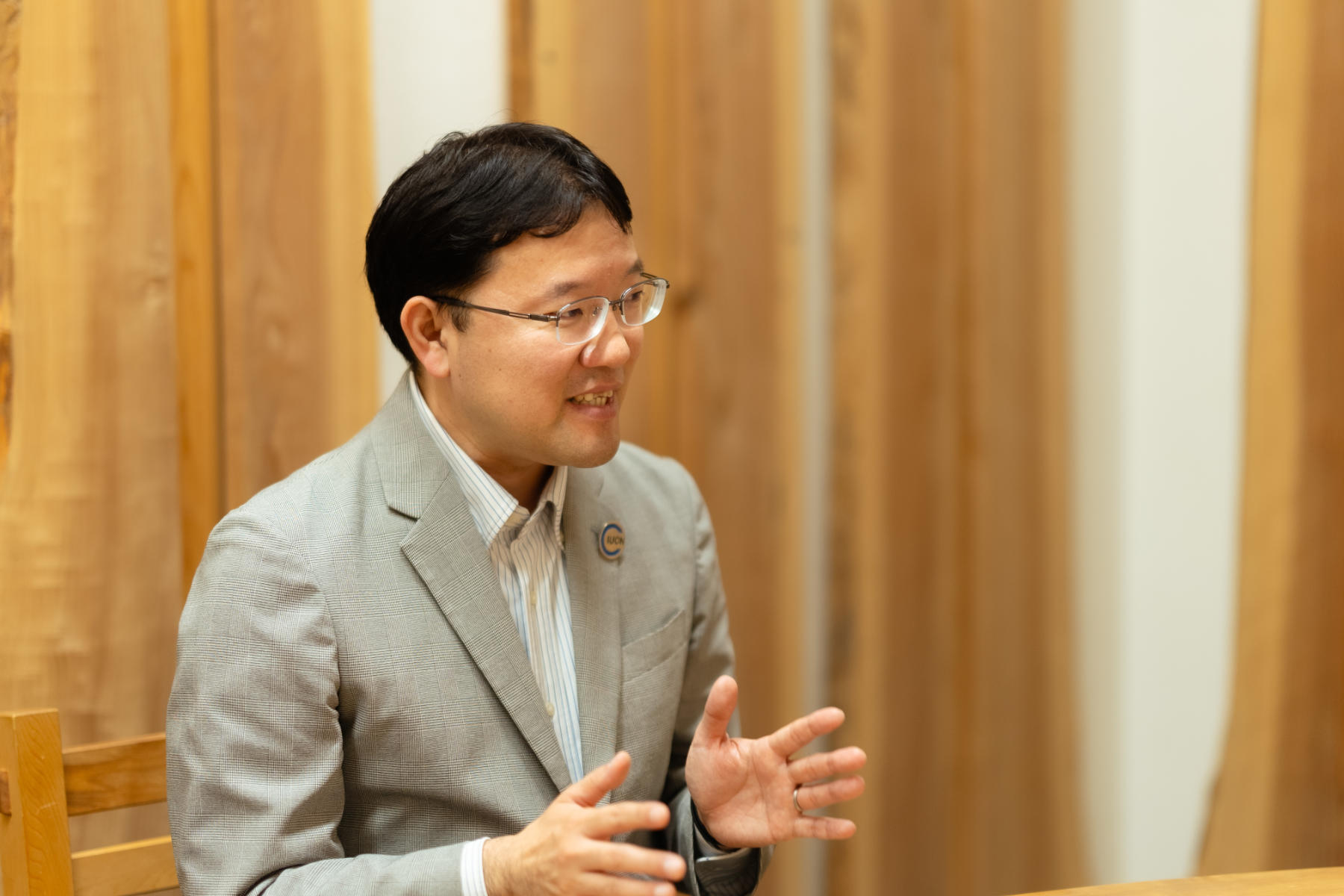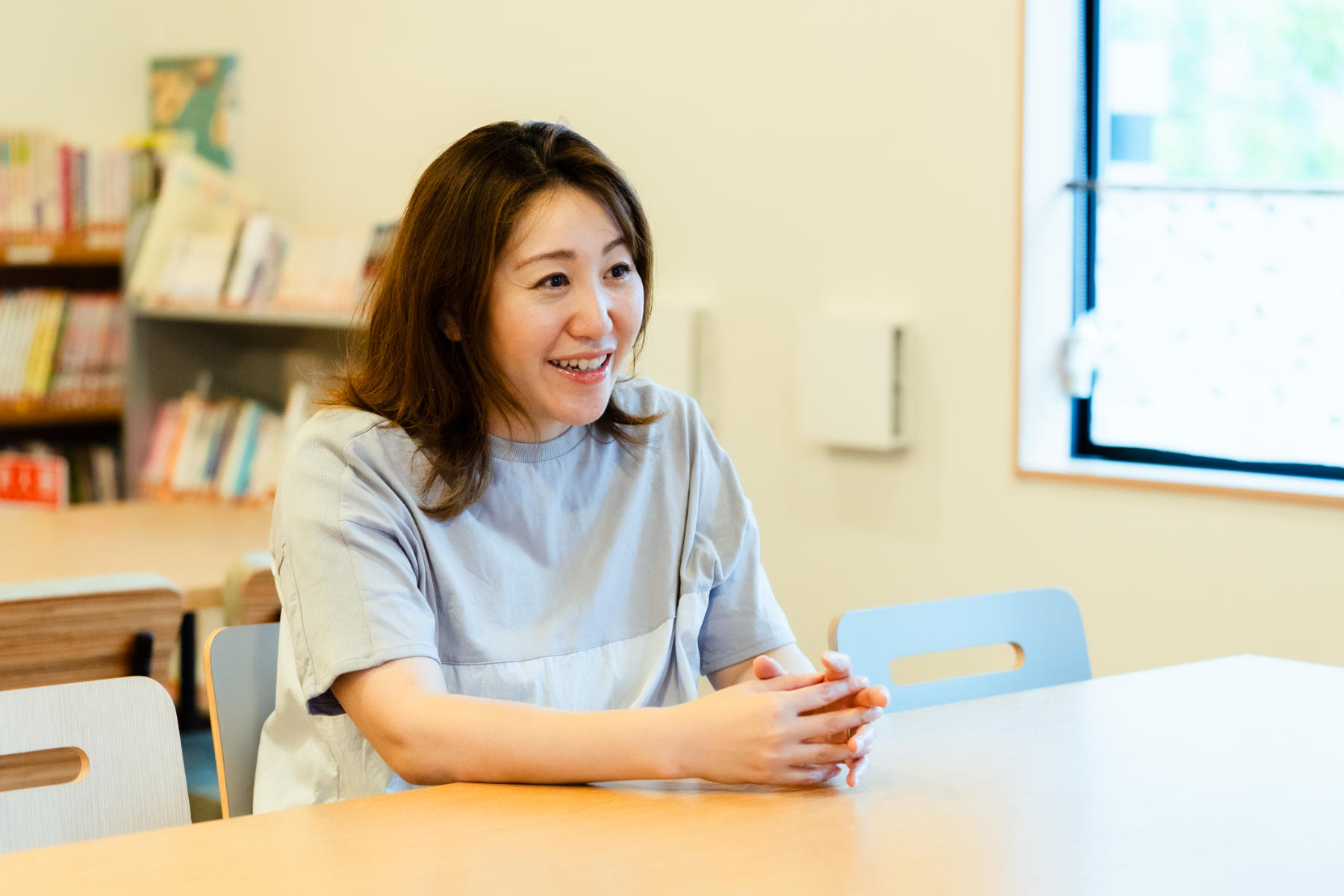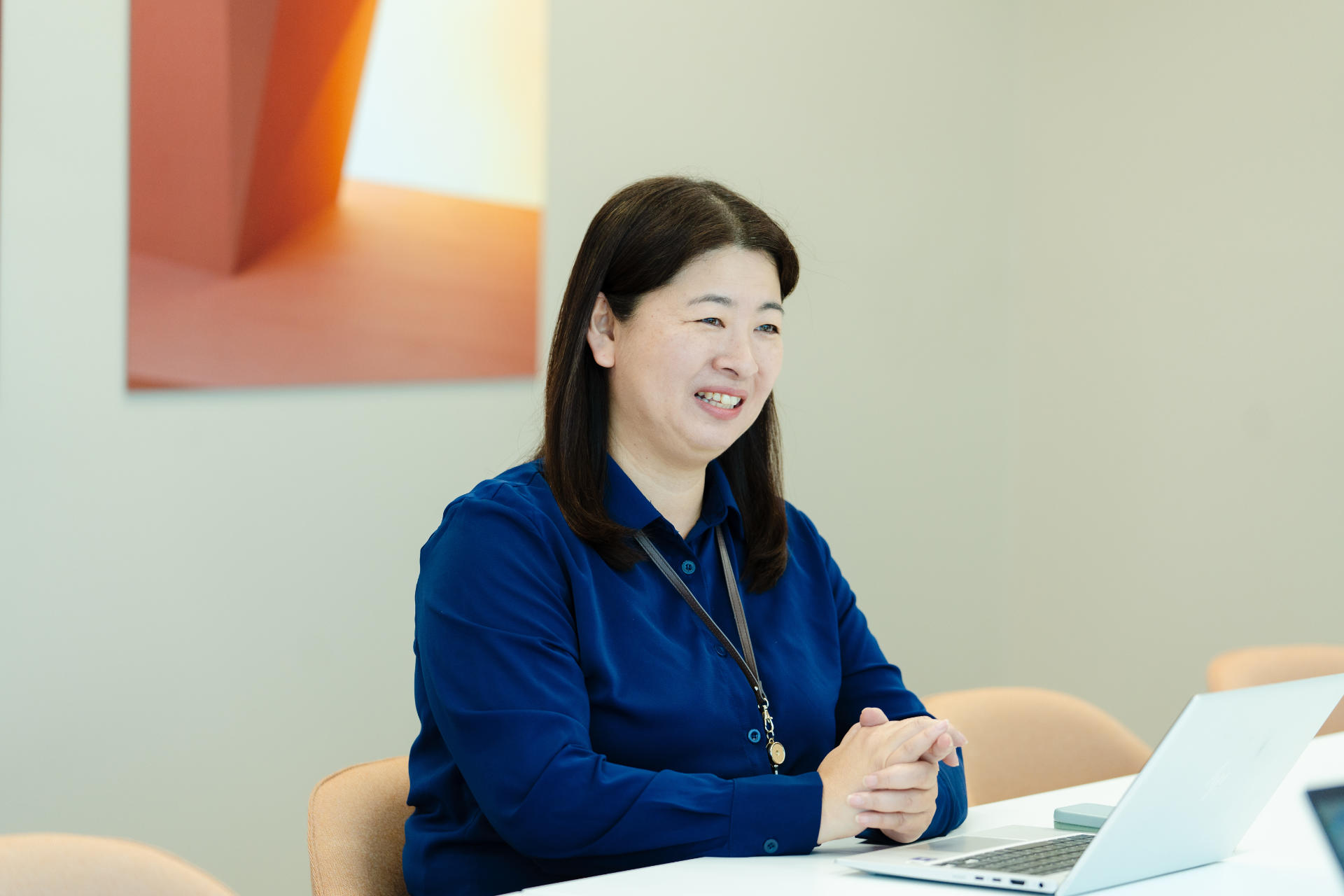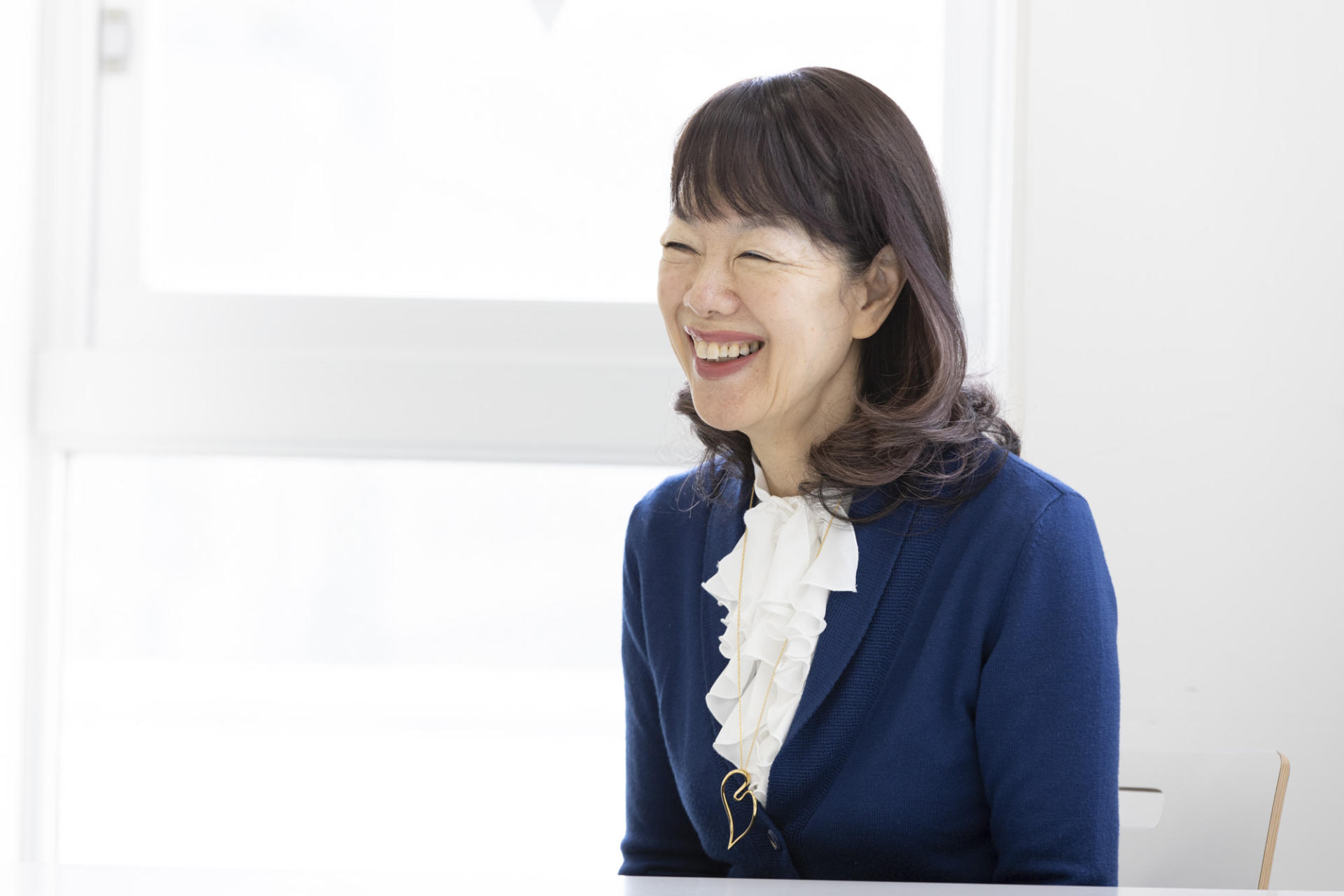CASE 39
Palsystem Relations Co., Ltd.
(October 1, 2022 – April 31, 2023)
As sustainability experts, you helped us identify our challenges and our advantages
Palsystem is a consumer cooperative made up of 1.7 million households in 12 prefectures, centered around the Tokyo metropolitan area. It's supported in its creativity and communication by Palsystem Relations, who were tasked with adding a sustainability section to the Palsystem website. They contacted Hitoshizuku for objective advice from a specialist in the field. We asked about the benefits of this advice, and about the response to the website's publication.
We felt you’d give us just enough of a push in the right direction.
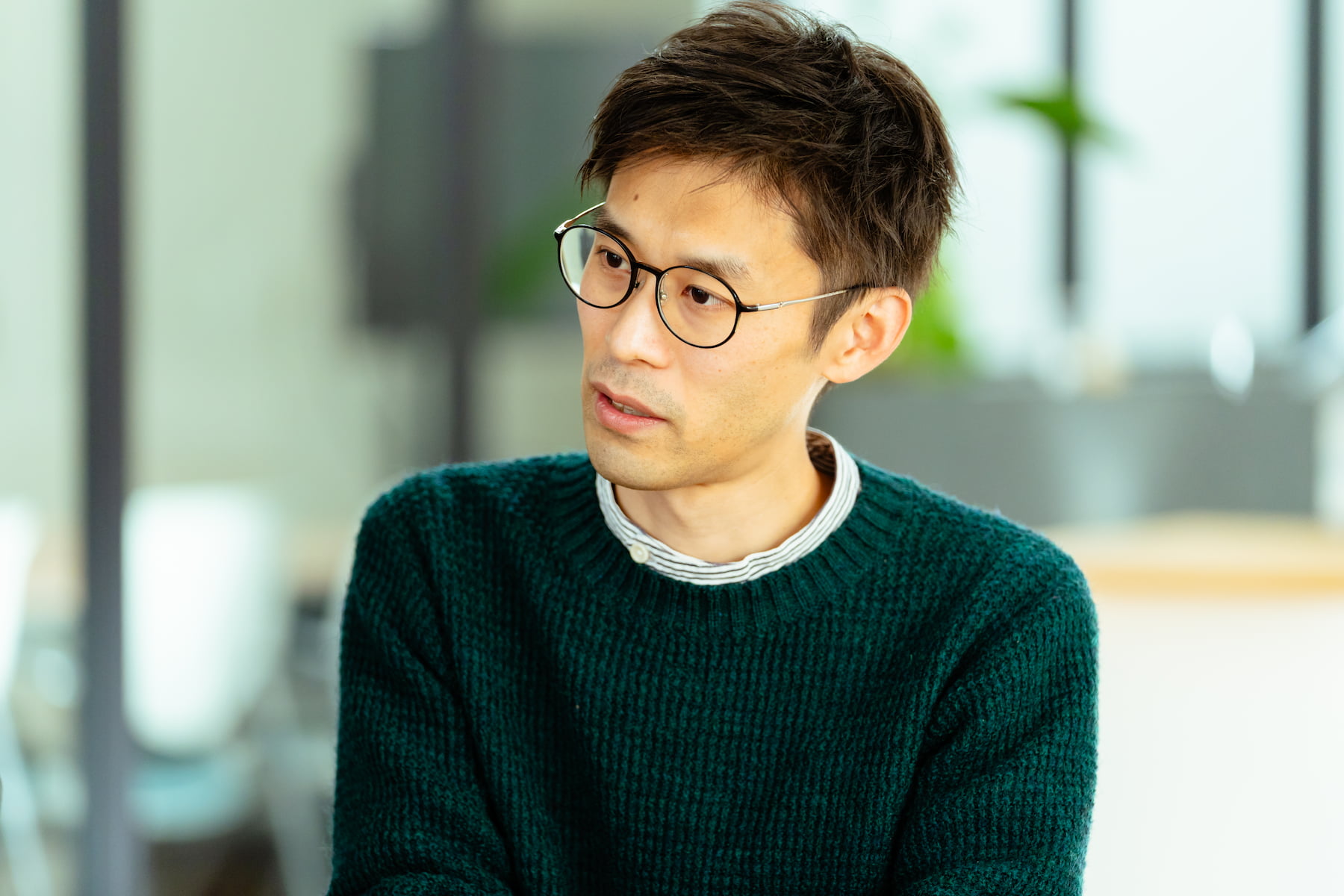
Haruki Okutome, Project Manager / Web Director, Palsystem Relations
Takako Chiba, Hitoshizuku (Chiba):
Firstly, can you summarize the project, and describe the challenges you were facing when you approached us?
Haruki Okutome, Palsystem Relations (Okutome):
Palsystem is a consumer cooperative that develops businesses and initiatives to address social and environmental problems. Globally, awareness of the Sustainable Development Goals (SDGs) has risen, and various organizations have begun to talk about their efforts in that context. Palsystem wasn’t doing the same, and it came across as if we weren’t considering sustainability at all. In fact, we’ve been working to improve society for over 40 years, but there’s no widespread awareness of that. As Palsystem’s director of communications, the situation really bothered me.
And so, in 2022, we decided to build a website that appeals to the public interest. It would communicate Palsystem’s activities from the perspective of sustainability.
Chiba:
Consumer cooperatives link consumers’ lives to social problems. They’re distinctive organizations, but they’re not very well known in Japan.
Okutome:
That’s true. Consumers pay to become members, then they manage the organization together. Palsystem is distinctive because it’s based on the idea that members and farmers join forces to improve society throughout their daily lives. It was founded with an understanding that rapid economic growth caused issues with food safety, and damaged the natural environment. For over 40 years, it’s been working to establish sustainable methods of food production and supply.
The cooperative has grown substantially; it’s currently made up of around 1.7 million households spread across 8 prefectures. Its focal point is a system for delivering safe, reliable food, directly from farmers to consumers. But it conducts socially conscious activities in a broad range of fields, including renewable energy, welfare, and peacekeeping. It’s also a community-based organization, so it develops businesses to address regional issues too.
The diversity of these efforts makes it difficult to communicate what we’re doing in a way that’s easy to understand. It’s a problem that Palsystem has faced for many years.
Chiba:
So you decided to use the widely discussed issue of sustainability as a gateway for talking about your activities. Why did you decide to contact Hitoshizuku?
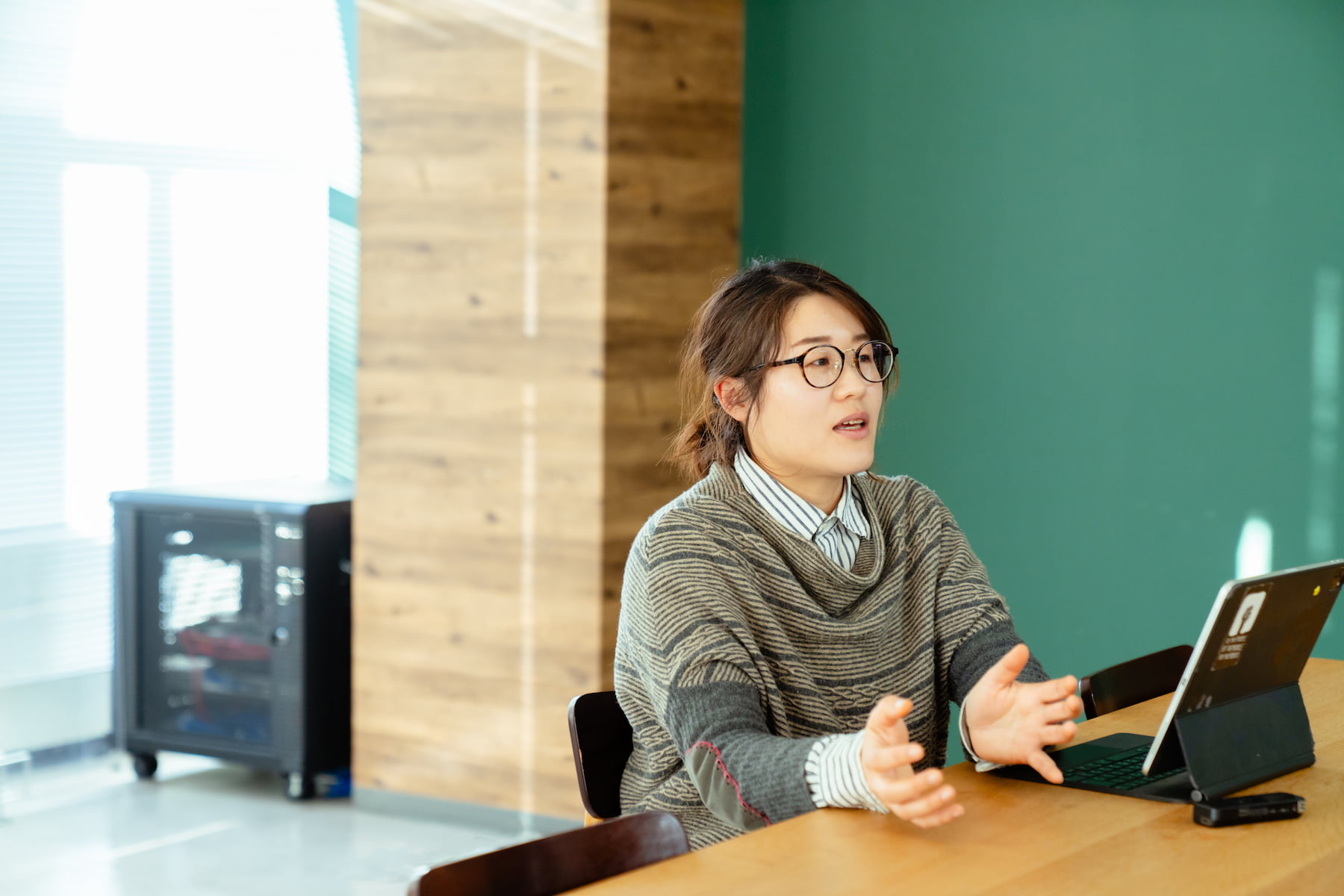
Takako Chiba, Hitoshizuku
Okutome:
Palsystem Relations is a member of the Palsystem Group, so we’re very familiar with its activities. However, we’re not experts in sustainability-related communication. And because we’re within the organization, we’re likely to prioritize the message we want to convey, rather than a message that users can easily understand. Right from the beginning, we knew we’d need an external partner to provide an objective viewpoint.
Several companies came to mind, but you were the first we decided to ask. I’d previously attended a press tour that you had organized, and you seemed trustworthy. That was a major reason.
Chiba:
It took place in April 2018, in Kaminoseki, Yamaguchi. We showed people around a guest house, supported by the company, Patagonia. What was it that made us seem trustworthy?
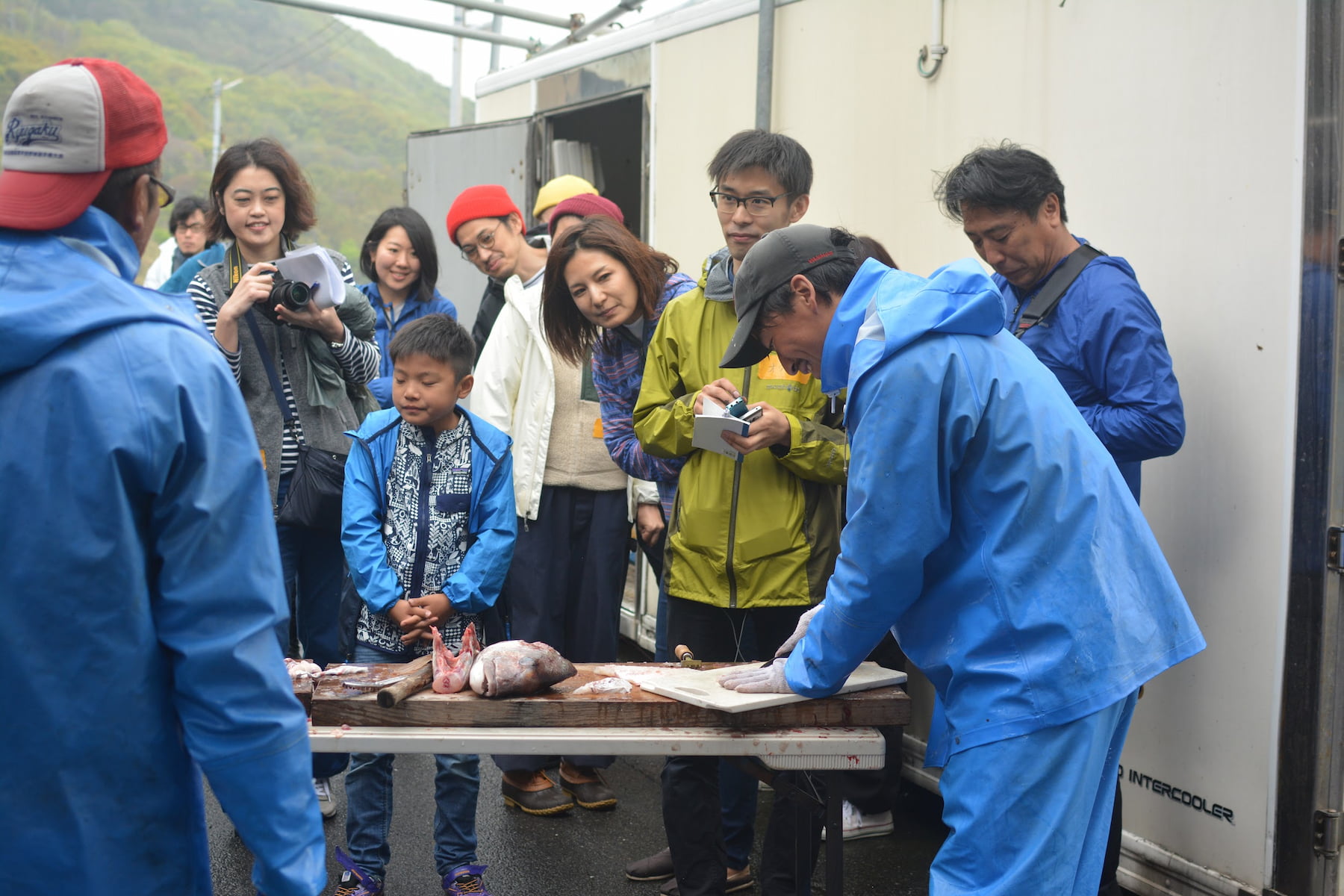
A press tour in Kaminoseki, Yamaguchi, conducted in April 2018. Okutome participated as director of KOKOCARA, a website run by Palsystem. Photo: Takako Chiba
(https://kokocara.pal-system.co.jp/2018/05/21/kaminoseki-nature-project/)
Okutome:
Rather than simply attracting customers, you seemed to focus on supporting the communication of a message. I felt that regardless of the client, you’d offer a push in the right direction—with just the right amount of force.
Also, I felt that Palsystem and Hitoshizuku have overlapping priorities. The Kaminoseki tour was calling for the cancellation of a planned nuclear power plant, to protect a natural environment known as the “Sea of Miracles.” Palsystem supports the abolition of nuclear power too. We back local economies, and coexistence with nature. It was very reassuring to see that you attentively support small, regional projects.
Chiba:
So you liked our logistical support, and sensed our dedication to communicating an organization’s true ideals. I’m delighted that you see us in that way, and that we appealed to you.
With your advice, we were able to talk about sustainability from our perspective, without using cliched expressions.
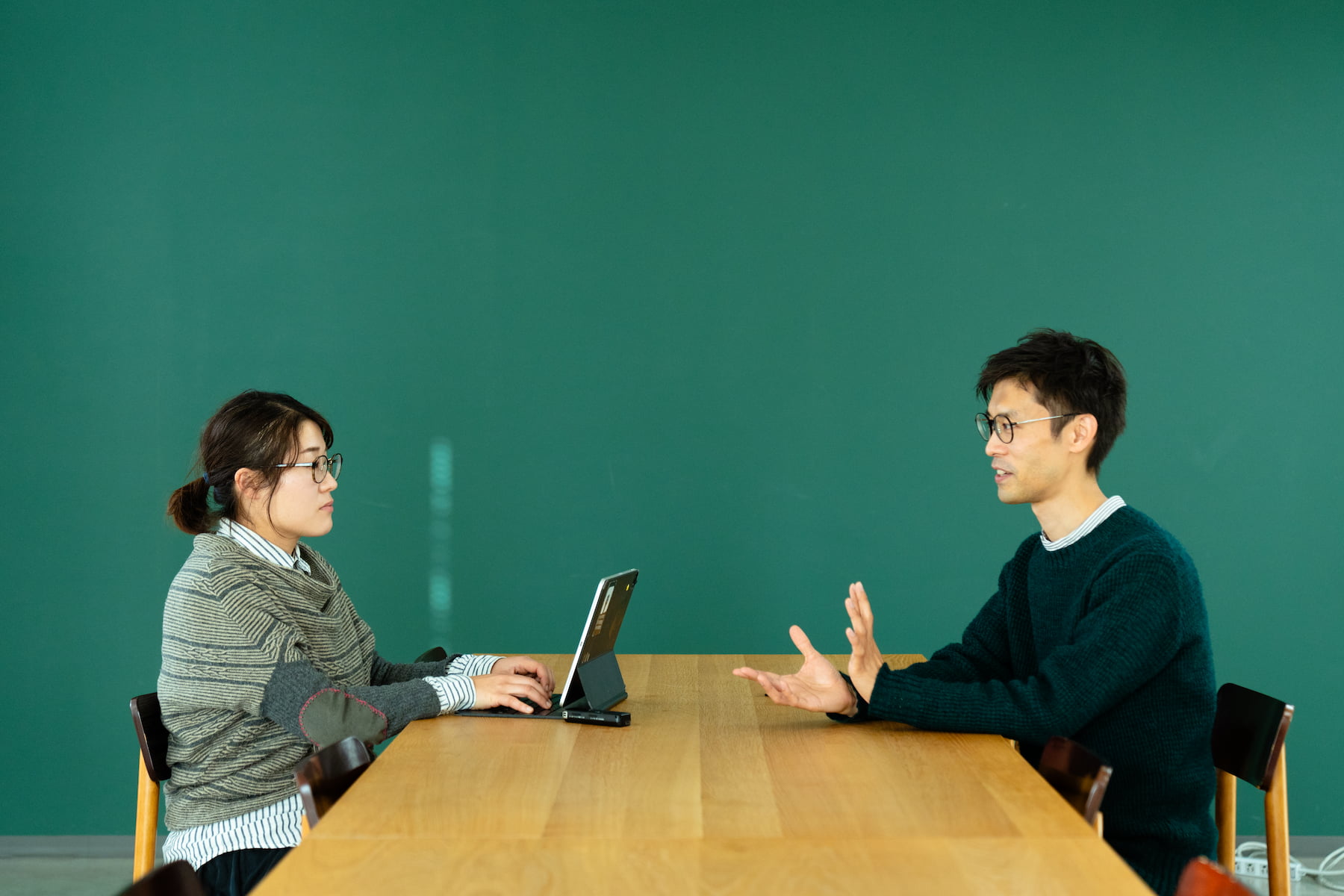
Chiba:
We advised you on the content of the website, including its focus. Did we manage to meet your expectations?
Okutome:
You certainly did. Your feedback helped us to present information that aligned with the public interest, built upon the unique traits of a consumer cooperative. You gave feedback twice within around six months, and on the first occasion in particular you emphasized the importance of choosing a target audience. We were aware of this, and we’d previously conducted internal discussions. But we were distracted by our desire to communicate to our members, and the wider world. We weren’t able to focus our messaging on specific groups. Your input gave us a chance to reconsider, and we settled on a target: members of the cooperative with little knowledge of business. Without that process, I think we’d have been complacent, and we wouldn’t have been able to get our message across.
When creating content, it’s easy to get distracted by the mode of expression. It’s important to focus on the “what” and “who,” rather than the “how.” It’s an easily overlooked point, so I’m grateful that you pointed it out.
Chiba:
Thank you very much. In our first round of feedback, delivered in December 2022, we recommended choosing a target audience. We suggested how to talk about sustainability in a way that suits your organization. And we gave advice on website structure. In the second round of feedback, delivered in April 2023, we proposed points to emphasize, and highlighted some sustainability expressions to keep in mind.
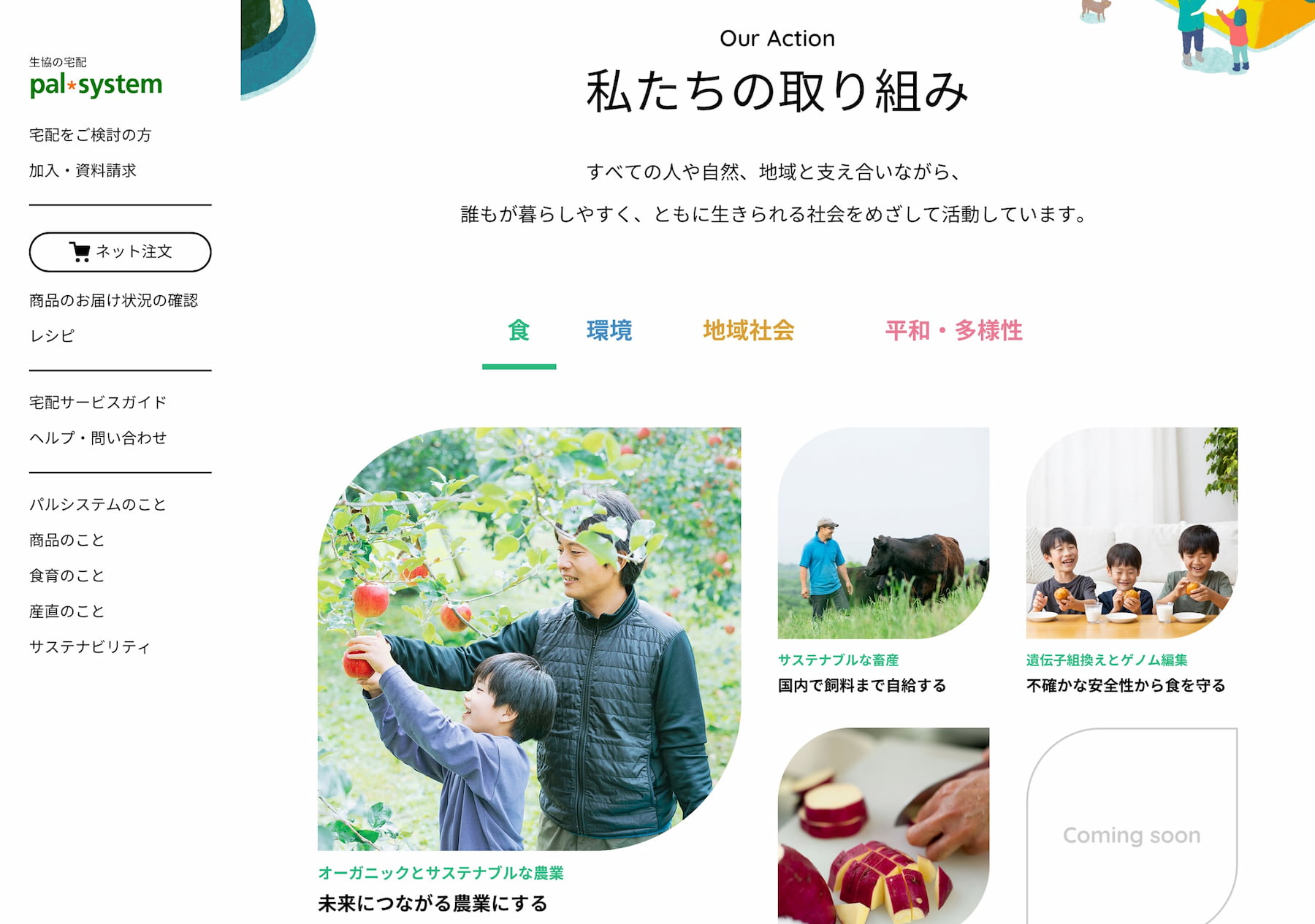
The sustainability page on the Palsystem website went online in April 2023, and is still live as of April 2024.
(https://www.pal-system.co.jp/sustainability)
Okutome:
We were grateful for all of your feedback. But the recommendation to “talk about sustainability in a way that suits your organization” was particularly impactful. In general, we started out by trying to convey Palsystem’s message using common expressions. At one of our consultations, we showed you a potential title—it was very general, and perhaps even cliche. You suggested describing what we’re actually working on. That helped us to express ourselves in a way that no-one else can. It was really great advice.
Chiba:
The headline that ended up on the page talks about sustainability from Palsystem’s unique perspective. I’m glad that you adopted our suggestion.
Is there anything that Hitoshizuku could have done differently? Were there any areas where we fell short?
Okutome:
Well, this is something that we’ve reflected on too. But I think our organizations could have connected in a better way. We knew you were the right people for this kind of job, but to be honest, we didn’t truly understand what to ask. To an extent, we were in the dark. Looking back, I think the timing of our request was a little late. If you worked with us as we laid the foundations of the project, we could have better taken advantage of your involvement.
Chiba:
After you approached us, we discussed the nature of our support. That took a lot of time, which delayed the start of the work. At Hitoshizuku, we tailor our support to the needs and circumstances of each partner. We don’t have a clear menu of services. When working with a client for the first time, it often takes a while to get going. And that’s not ideal for a website with a set publication date.
Okutome:
At first, I thought we’d be able to get your advice by speaking to you online. But you were reluctant. In the end, you sent us documentation in addition to holding online consultations. And I actually think that was really useful. It clarified the problems we were facing.
You joined in as we were finishing the groundwork. And your feedback was so good that we felt compelled to incorporate it. We were really pleased.
Chiba:
The earliest edition of the website was published in April 2023. How was the response? Did it prompt any changes, either internally or externally?
Okutome:
The internal changes were significant. In meetings, I often hear people say, “Ah, this info is on the sustainability page.” Previously, some information was difficult to store, because it didn’t fit into an obvious category. Now, it’s placed into a box labelled, “sustainability.” Within our organization, there’s a new effort to sort information in that context.
The website has also given us a chance to recognize the importance of sustainability. For example: biodiversity. On your advice, I recommended emphasizing it, with terms like “nature positive.” We adopted that kind of terminology, and as a result, words and concepts relating to sustainability have permeated the fabric of the Palsystem Group. For years, we’ve been supporting efforts to reduce the pesticides used in rice production. The work itself hasn’t changed, but by describing it as “nature positive,” we’ve cultivated the image of farmers working with our cooperative to achieve the same goal.
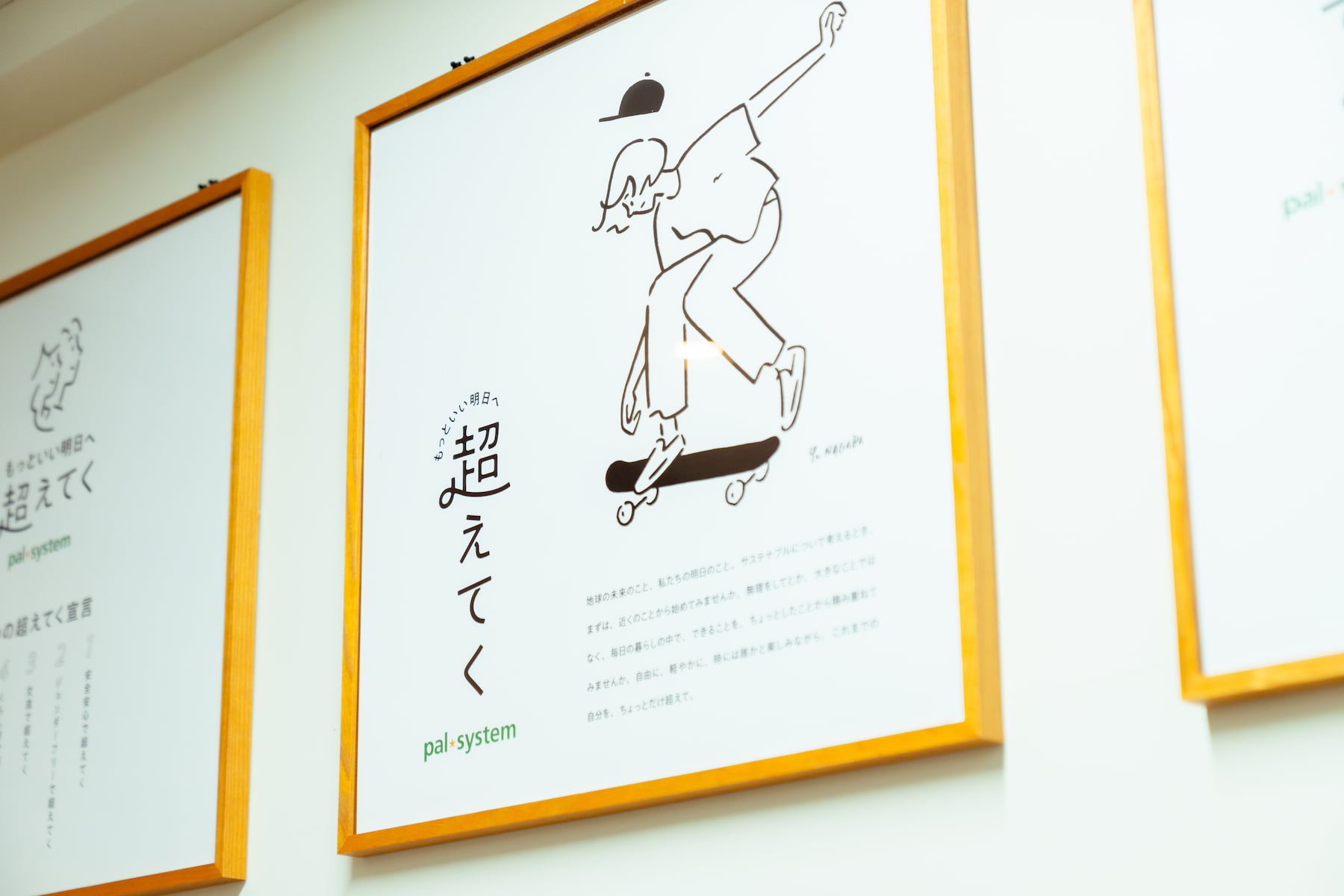
Chiba:
So the sustainability website has been a tool for building a shared understanding within the company. I heard that the second stage of content development is underway, and development will continue sequentially, beyond 2024. Is there anything else you’d like to work on the future?
Okutome:
This is one of your suggestions, but I think we need a plan for putting the website to use. Simply creating a page isn’t enough—people have to read it. It’s only when we’ve convinced our target audience to read our website that we’ll have successfully conveyed information.
In many ways, we’re yet to communicate information to the outside world, beyond the sphere of our own members. So I’d like to work on that. Right now, we find it difficult to approach the media. We should conduct PR for our current projects, but we haven’t been able to get started. And when it comes to external communication, I think you’ll be able to help us.
Chiba:
When the time comes, please give us a call. For us, it was very meaningful to help an organization that has been tackling environmental and social problems for so many years. It was our first time working with a cooperative, so it’s been a valuable experience. I hope that the website will enable Palsystem to become a leading figure when it comes to food and farming sustainability in Japan. And I hope you show the industry what’s possible! We’d be delighted to offer our support again in the future. Contact us any time.
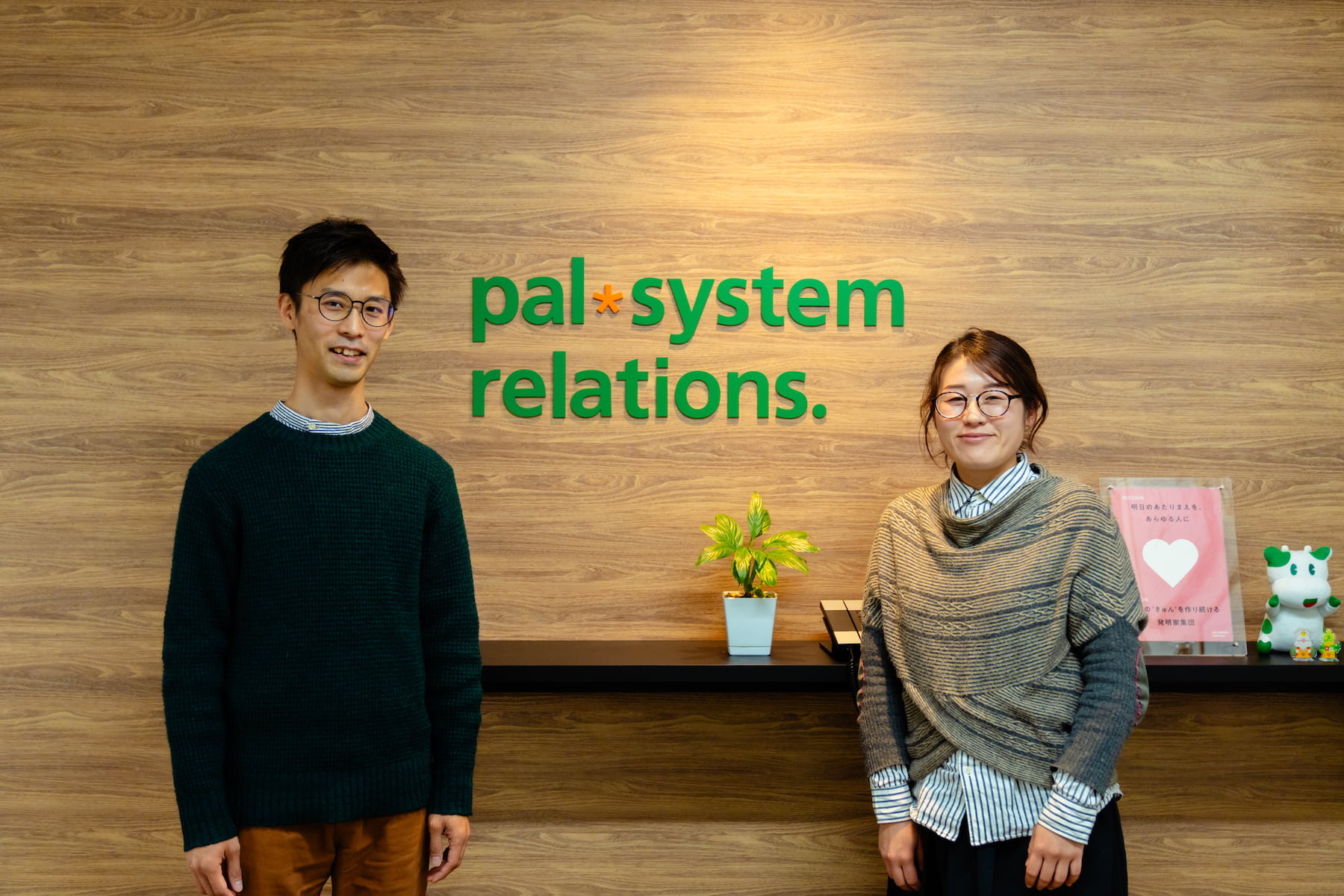
Photography: Hiroyuki Horigome
Editing: Takako Chiba
Translation Editing: Satomi Furukawa
RECENT WORKS
| Name | Hitoshizuku Inc. |
| Address | 33 Nihonodori Naka-ku Yokohama Kanagawa 231-0021 JAPAN |
| Branch | Hamacho Odawara Kanagawa 250-0004 JAPAN |
| Phone | 81 045 900 8611 |
| info@hitoshizuku.co.jp |
| President | Hiroshi Kokubo |
| Established | March 2016 |
| Capital | 3,000,000yen |
| Business | Advertising & Public Relations Agency Planning & Produciton of Social Good Projects |
| Lawyer | Junna Tei / Yokohama First Law Office |
| Tax Advisor | Satoru Motokoide / Uniques Money Advisory |
| Labor and Social Security Attorney Office Work Innovation | |

